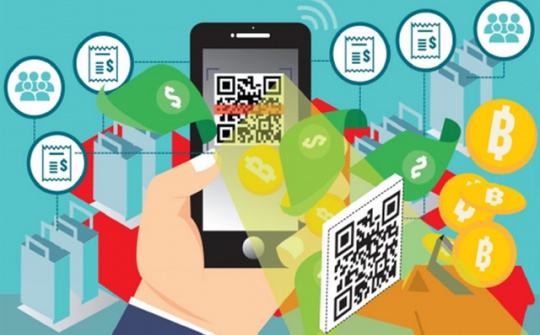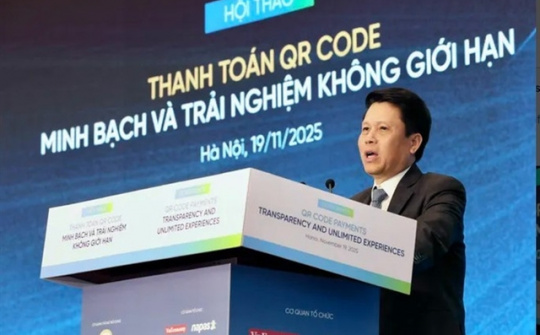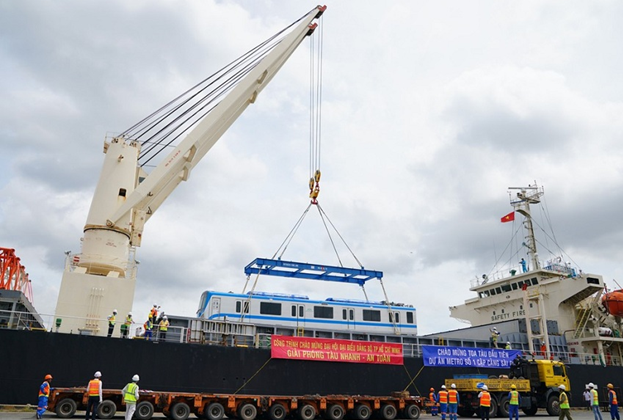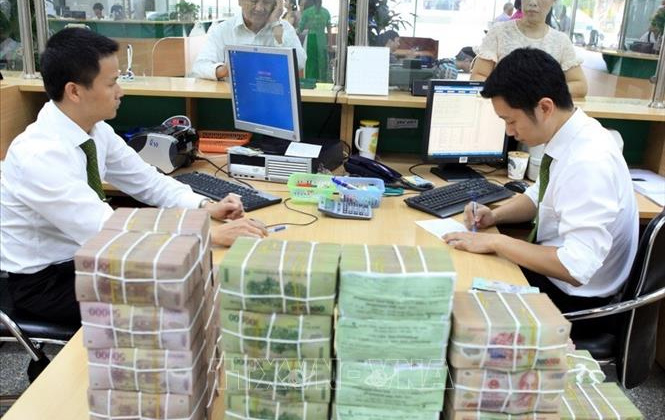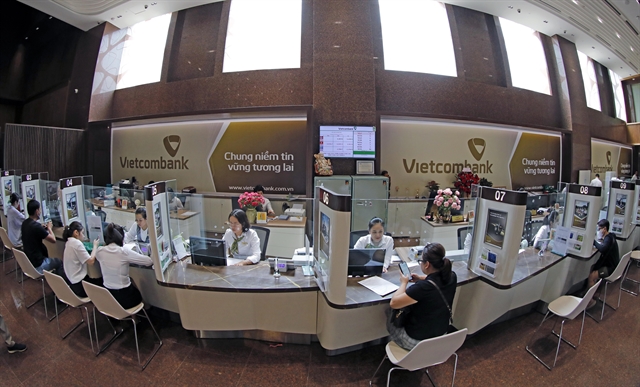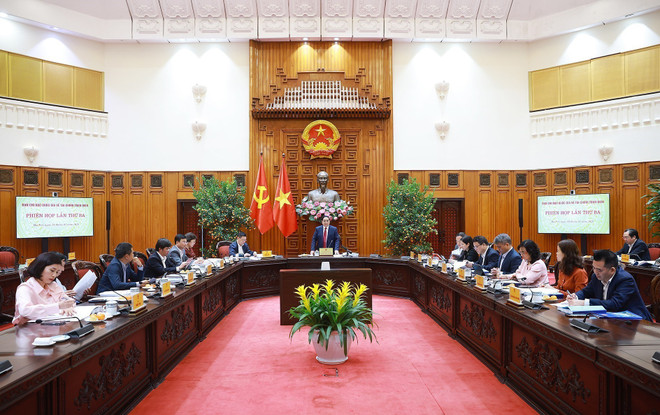Ha Minh Hai, Vice Chairman of Hanoi People’s Committee, last week underscored the critical role of smart payment systems in Hanoi’s strategy for smart urban development at a conference last week on the issue.
Hai emphasised that smart payments were the backbone of connecting public and social services, forming the foundation of a digital ecosystem where citizens and businesses can seamlessly engage and benefit from digitised services.
This year, localities like Hanoi have installed more cashless payment systems
An example of this transformation is the integration of cashless payments into the city’s public services. Hanoi has successfully implemented these systems at all single-window service points, allowing residents to pay administrative fees through electronic platforms, eliminating the need for cash or in-person transactions at government offices.
“This shift has streamlined payment processes for residents and improved efficiency in public service delivery,” Hai noted.
Beyond administrative services, the expansion of smart payments has reached various sectors, including healthcare, education, and public utilities. “This integration represents a significant leap in modernising Hanoi’s service infrastructure, contributing to a transparent, secure, and convenient financial ecosystem for all,” Hai added.
By September, Hanoi had introduced over 100 cashless payment points at smart parking facilities in key districts such as Hoan Kiem, Cau Giay, and Ba Dinh. The initiative has allowed residents to pay parking fees effortlessly using bank cards, QR codes, or e-wallets.
“This system not only makes transactions easier for residents but also enables the city to monitor and manage revenue from these facilities more transparently,” Hai said. Since its launch, over 550,000 transactions have been processed, generating more than $2.28 million in revenue.
However, Hai pointed out that the journey towards a fully integrated smart city was not without its challenges. “One of the major hurdles is ensuring cybersecurity and protecting personal data in digital transactions,” he said.
He expressed optimism about the broader applications of smart payments, stating, “Smart payments will not only be confined to public services and commerce but will also extend to sectors such as smart agriculture, digital tourism, and cross-border e-commerce.” This outlook reflects Hanoi’s ambition to expand its smart city vision across all aspects of urban life.
Pham Tien Dung, Deputy Governor of the State Bank of Vietnam (SBV), outlined the essential qualities of a smart city, describing it as both clean and digital. He highlighted the crucial relationship between smart city development and digital transformation within the banking sector, stressing that this connection is fundamental to creating sustainable urban environments.
A key factor driving this transformation is the rise of open banking, which fosters collaboration between banks and third-party providers.
“Open banking brings significant opportunities for growth and improves the customer experience through enhanced connectivity,” Dung said.
He explained that this trend aligns closely with Hanoi’s smart city goals, as it opens new avenues for digital financial services to support urban development.
However, Dung and other experts agreed that further steps are needed to accelerate the growth of open banking. These include enhancing the regulatory framework, upgrading technological infrastructure, and ensuring robust data security and privacy measures.
“This requires raising public awareness about digital financial services and building a national customer database for banks,” an industry expert noted. Such initiatives, they argued, are essential for creating a secure and sustainable financial ecosystem that can support a smart city’s growth.
Despite the progress made, challenges remain. Dr. Nguyen Quan, former Minister of Science and Technology, pointed out that Hanoi’s smart city efforts are still in their early stages and lag international standards.
“There are still unresolved issues in smart projects within education, healthcare, public services, and online transactions, which are not yet fully aligned with the city’s overall planning,” Quan said. “This is a challenge, but I believe Hanoi will push forward decisively to build a truly smart city.”
In comparison to Hanoi, Ho Chi Minh City has also been making strides towards a cashless society but faces its own set of challenges.
Nguyen Van Dung, Vice Chairman of Ho Chi Minh City People’s Committee, said at a cashless payment event in July, “All public hospitals in the city have adopted cashless payments, with this transition extending to major markets, supermarkets, and shopping centres.”
However, similar to Hanoi, Ho Chi Minh City also struggles with issues around user security and public reluctance to embrace digital payments fully.
“Collaboration with agencies to formulate a robust legal framework and upgraded digital infrastructure is essential to support secure and widespread adoption,” Dung stressed.
On the other hand, Dung of the SBV announced a key development in the banking sector.
“From 2025, all bank accounts must be updated to match citizen identification data, ensuring consistency with the national population database. Any account that is not verified will be suspended from transactions,” he said. “By ensuring accurate, real-time data, the banking sector will be better positioned to support smart city initiatives, building public trust and reducing the risk of fraudulent activities.”





